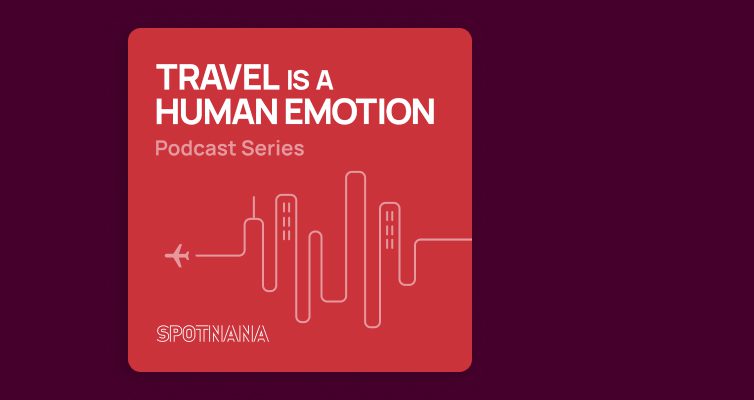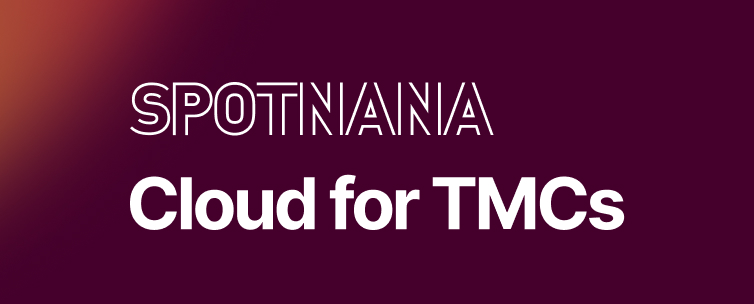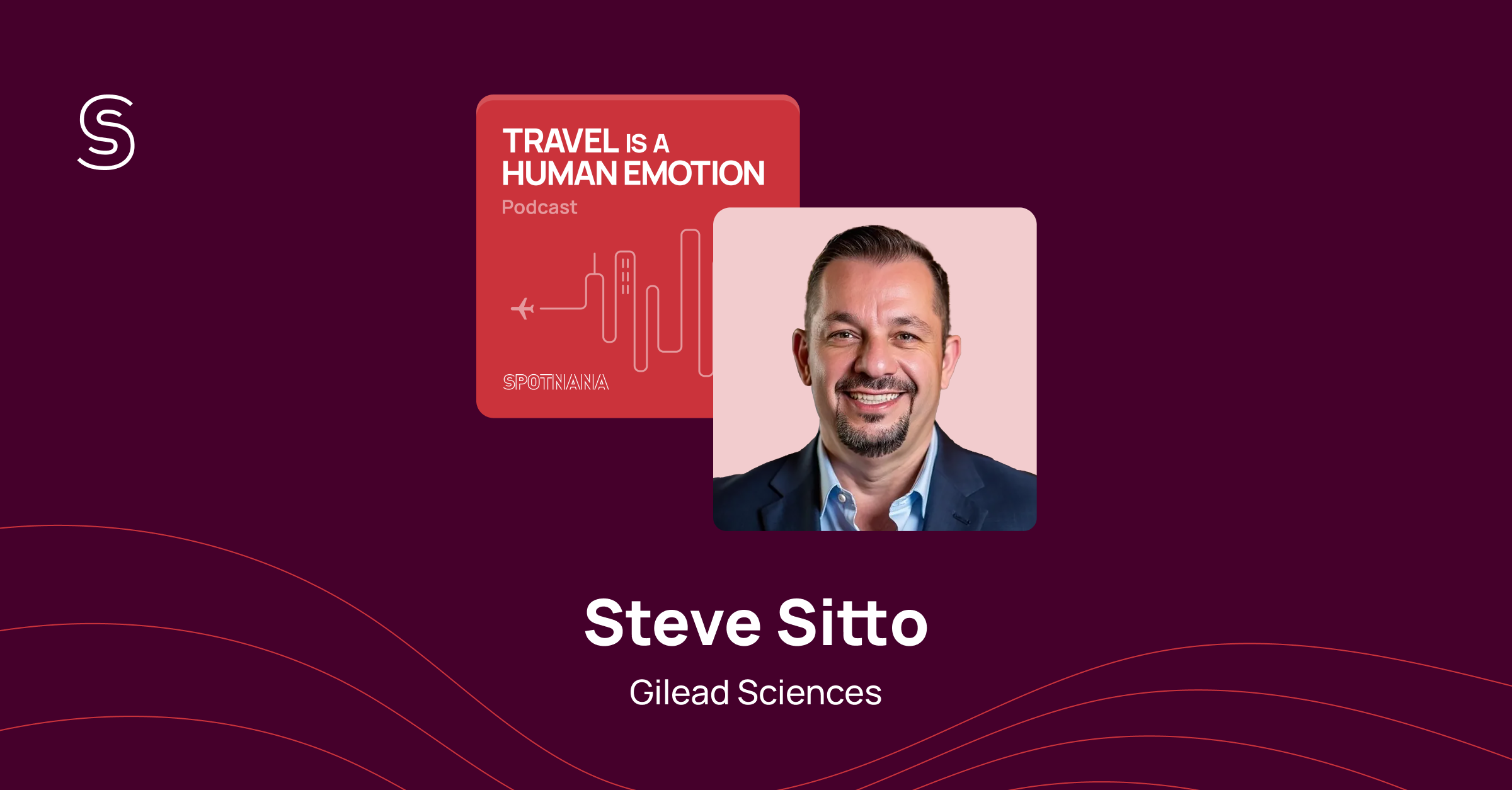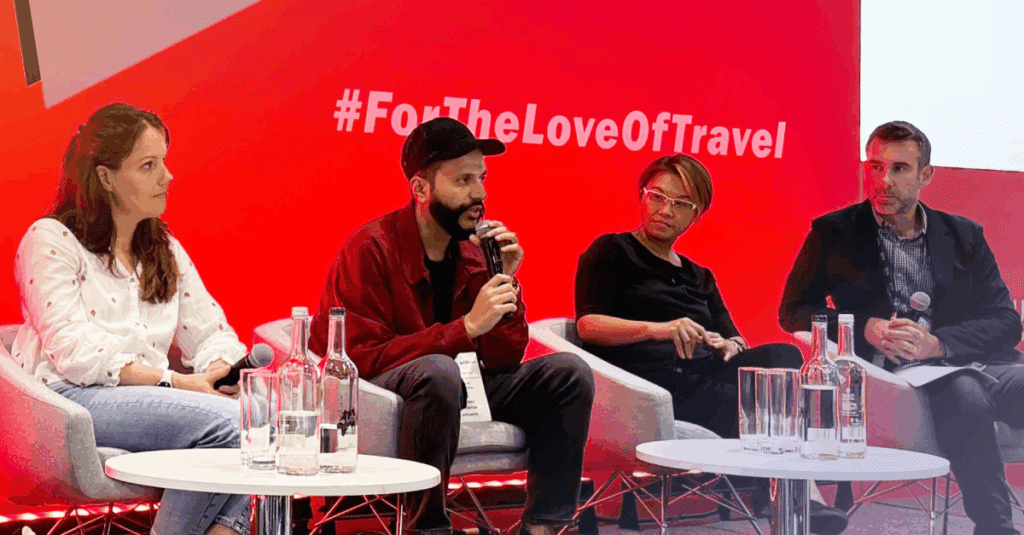Podcast: A travel manager’s journey
Support from leadership is crucial for travel managers trying to bring innovation and better experiences to their travel programs.
For the fifteenth episode of The Travel Is a Human Emotion Podcast, Spotnana SVP of Marketing Justin Schuster spoke with Steve Sitto, Gilead Sciences’ Global Head of Travel, Meetings, and Events, who detailed his approach to program transformation and personal well-being.
Sitto, named Travel Manager of the Year by BTN in 2024, discussed his strategy for modernizing Gilead Sciences’ global travel program, the power of data-driven stakeholder collaboration, and the importance of mental health in the corporate travel industry.
Prioritizing the human element
A primary focus of the discussion was Sitto’s candid perspective on mental health within the high-pressure corporate travel environment. He positioned personal well-being as a direct prerequisite for professional effectiveness and credibility. “If you don’t take care of yourself, you’re not going to show up right at work,” Sitto said.
He described his own experience with anxiety and burnout, emphasizing that support from leadership was crucial to his recovery. His experience underscores that transparency with management is a key component of a healthy corporate culture. “It’s not a bad thing to say, ‘I need help,’” he advised.
Being open with his managers, combined with the setting of firm professional boundaries and assuming good intentions from colleagues, created a foundation for his continued success in his role.
Architecting a modern travel program
Upon joining Gilead Sciences three years ago, Sitto was tasked with a comprehensive modernization of its global travel program. His methodology was rooted in simplification, stakeholder collaboration, and the strategic implementation of technology.
He challenged the conventional view of static corporate policies. “Travel and the T&E policy are not static programs,” Sitto said. “They have to remain active and dynamic, and you can change them any time.”
A cornerstone of his strategy was the direct involvement of stakeholders in the policy-making process. This fostered a sense of ownership and accountability which led to higher rates of natural adoption.
“If you want natural adoption to your program, get all the stakeholders together, make sure that their voice is put into the T&E policy,” he said.
This management strategy, paired with technologies like robotic process automation and machine learning for targeted email sends and routing follow-up calls from a traveler to the same agent produced measurable results. The program saw a significant increase in adoption and a corresponding decrease in out-of-policy bookings.
A look at the road ahead
Looking forward, Sitto sees technology as a critical driver for enhancing the travel experience, but he insists that innovation must be built on a solid foundation of reliable data.
“Data is going to be your best friend or your worst enemy,” he said, highlighting its central role in building a successful business case for change.
Sitto is optimistic about the potential for further use of AI in the booking experience and the development of more intuitive mobile experiences for travelers. He also acknowledges that securing investment for these advancements requires educating leadership on the complexities of the travel ecosystem.
He recounted walking a procurement head through the backend of airline inventory management, which elicited a surprised reaction: “I had no idea it was this complicated.”
Explaining the operational realities of the travel industry is a powerful tool for securing resources from stakeholders, and better serving the deeply personal needs of every traveler.






